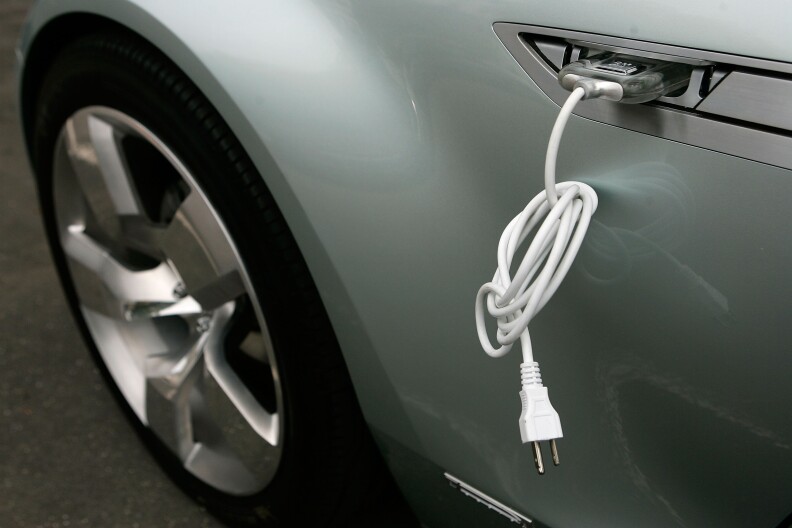Right now, electric cars are kind of a one-way street. They suck power from the grid, and then use it to power down the road.
But, a group of electric utilities and auto makers are working on systems that could allow all those electric cars use their stored power to help smooth out the peaks and valleys that are the bane of electric utilities.
Susan Carpenter, motorcycle critic for the LA Register and regular contributor to Take Two's Wheel Thing, says such systems are already used in Japan. She describes one pilot project in which electric cars, parked in an office building during the day, draw power during periods of slow demand, give some back when demand peaks, and still are fully charged when workers drive them home.
Carpenter says the idea appeals to utilities, who might be able to avoid having to build new, and costly power plants to help them meet peak demand.



